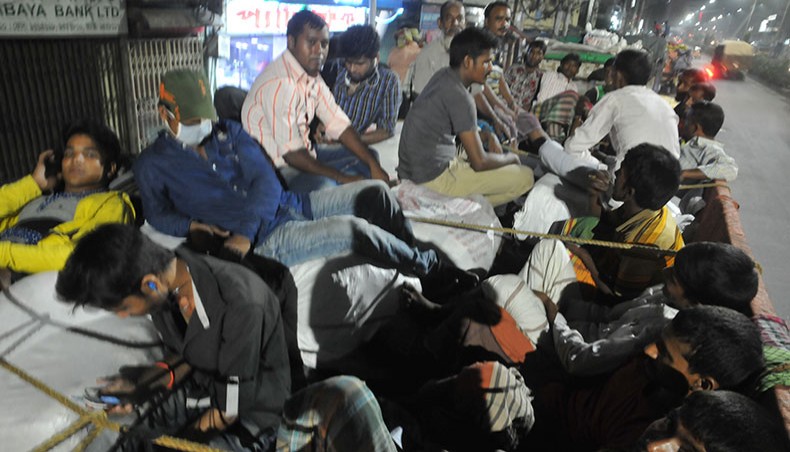11m people suffer from acute hunger: WFP report
A quarter of the country’s population has been classified as food-insecure as most of the people do not get sufficiently nutritious diet, reveals a World Food Programme report.
‘Despite the impressive gains achieved over the last few decades, a number of concerns still remain. First of all, an alarmingly large number of people still remain food-insecure and hungry,’ read the summary of the report, released on Wednesday.
In absolute number, the food-insecure population size stands at 40 million and 11 million of them suffer from acute hunger, according to the report on ‘Strategic review of food security and nutrition in Bangladesh.’
‘The size of the population vulnerable to food insecurity is even bigger than the food-insecure population,’ said Siddiqur Rahman Osmani, who led the team involved in the review.
‘No country can expect to build a thriving economy on the backs of hungry and undernourished people,’ he said before launching the report at National Economic Council auditorium.
According to the report, about 2.2 million children are at the risk of meeting death as they suffer from wasting and low-weight at birth, weighing below 2.5kg.
One in every three children also suffers from stunted growth due to acute malnutrition.
Malnutrition already costs Bangladesh more than $1 billion in lost productivity every year and even more in health costs.
The report came at a time while the government aimed to end hunger by 2024, tackle malnutrition by 2030 and turn Bangladesh into a developed country by 2041.
Former caretaker government adviser Hossain Zillur Rahman emphasised swinging the discussion around nutrition security as the term food security assumed the meaning of having only enough rice to eat in the context of Bangladesh.
‘Whenever our politicians or government talk about crop production, they mean rice production only…It is the time to start discussing nutrition security,’ Zillur told the New Age.
He thinks that the country needs to go a long way as there are deficiencies in terms of production of crops, except for rice, ensuring quality of the production, and people’s ability to buy available food.
‘Rice production dominates agriculture economy and over half of the economy generates from rice production,’ said Bangladesh Agricultural University agronomy department professor Delwar Hossain.
‘We haven’t been able to produce enough food except for rice and we have a production deficit in almost every other crop,’ he added.
He cited the example of the production of wheat, the second main food grain.
‘We have to import wheat too…Cultivating sufficient food for such a huge population from such a tiny landscape is not an easy task,’ he added.
Bangladesh Resource Centre for Indigenous Knowledge researcher Pavel Partha, however, thinks that food security has very little to do with nutrition.
‘Food security depends on understanding the culture of the people…It means the need of the people and how they choose to fulfil their need, he said, adding, ‘Food security depends on the availability of food and food sources, and securing food diversity.’
An analysis of data presented in different years in the yearbook of agriculture statistics, yearly publication of the Bangladesh Bureau of Statistics, showed even the production of rice, except for Boro, decreased over the years.
Production of vegetables, fruits, sugar crops, spice and condiments, oil seeds, maize and minor cereals (Barley/Jab) have either stayed static or decreased over the years too.
The WFP report revealed that agriculture growth halved in the past five years compared to preceding five years with fresh challenges arising from socioeconomic and climatic evolutions before the government.
The report launching ceremony was also attended by finance minister AMA Muhith, economic relations division deputy chief Monirul Islam, WFP’s Christa Rader and James Harvey and disaster management and relief secretary Shah Kamal.
‘The lesson from this report is to focus our attention to nutrition…We need to remember nutrition does not mean the end of hunger, it means more than that,’ said Muhith.
‘Perhaps, we need to have some changes while looking from the point of nutrition,’ he added.
Muhith said that he had also wanted a provision in the national budget for funding a village-based social movement against early marriage to fight malnutrition among mothers and children.
Source: New Age










